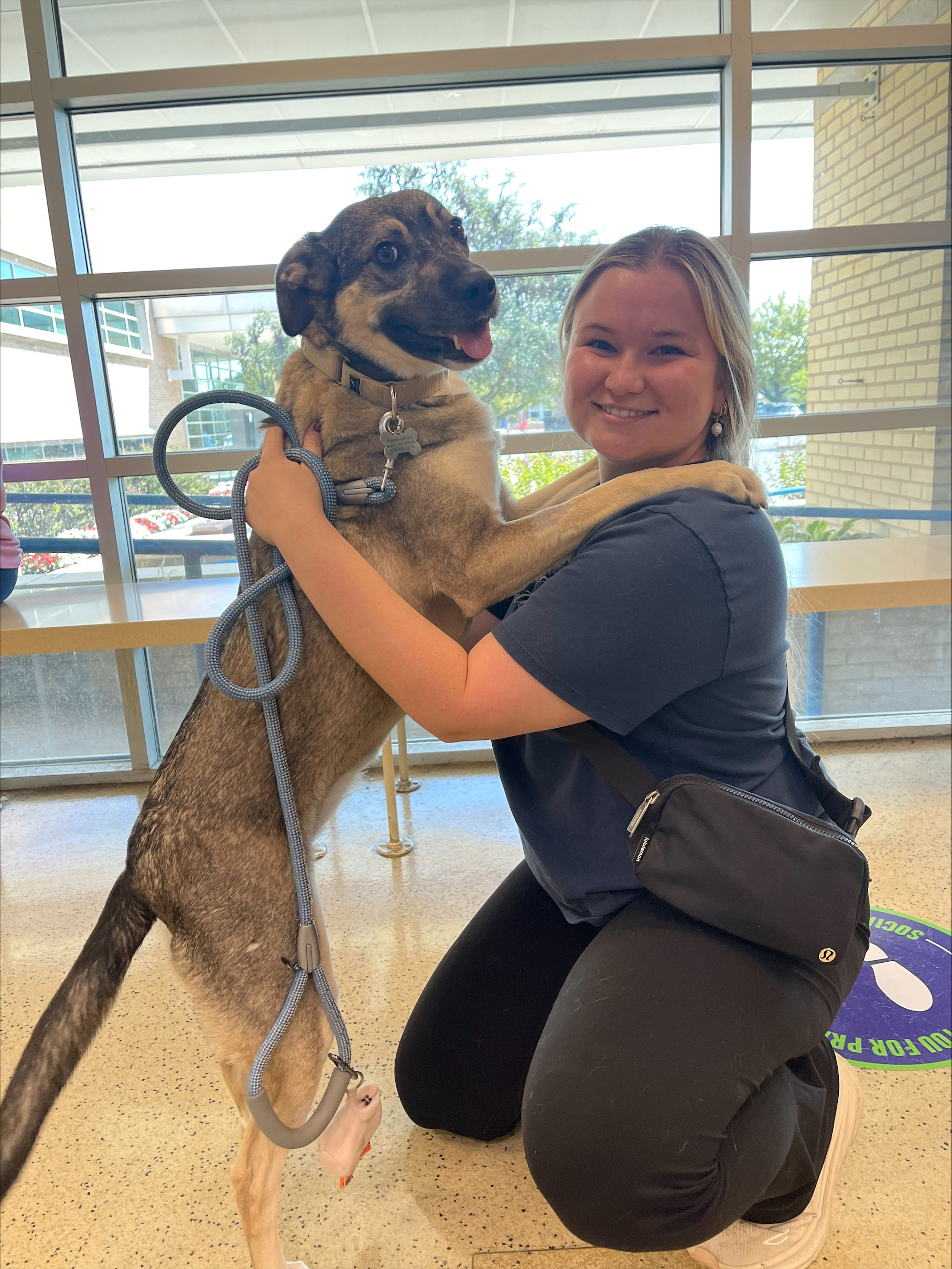April showers bring May flowers, but warmer weather also brings an increase in mosquito activity, which means a greater risk of the spread of heartworm disease.
According to the American Heartworm Society, heartworm disease is a serious and potentially fatal disease in pets in the United States and many other parts of the world. It is caused by foot-long worms (heartworms) that live in the heart, lungs and associated blood vessels of affected pets, causing severe lung disease, heart failure and damage to other organs in the body.
April is National Heartworm Awareness Month, and the Humane Society of Missouri and Animal Medical Center of Mid-America encourage pet parents to know the facts of heartworm disease to keep pets protected year-round:
-

Cass County rescue pup Cleo suffered from heartworms when she first came to HSMO. She underwent treatment and was able to find her forever home!
Puppies should begin heartworm prevention medication at eight weeks of age for the best protection. Dogs should be tested once a year for heartworm disease, and preventative medication should be administered year-round. While the threat of heartworm disease is greater in warmer months due to an increase in disease-spreading mosquitos, the risk is always present, especially in the Midwest where weather is unpredictable.
- Heartworm disease affects both dogs and rarely cats, indoor and outdoor. Mosquitos often find their way into homes, and one bite is all it takes to infect a pet. Pet-safe mosquito repellant can be an added security measure for furry friends, but it is not a replacement for veterinary-prescribed preventative medication.
- Symptoms of heartworm disease are often unnoticeable until six months after a pet has been infected. At that point, it is still difficult to see the signs, but they often include coughing, exercise intolerance, shortness of breath, nosebleeds and eventually collapse due to complete blockage of all blood flow in the heart.
Humane Society of Missouri staff and volunteer pet foster families understand the challenge of caring for a dog with heartworm disease. Treatment for the disease is lengthy, expensive and can be difficult and painful for the pet. Preventative medication is the best way to avoid this suffering and expense.
Take the step to protect pets by scheduling an appointment at the Animal Medical Center of Mid-America locations in St. Louis City or Maryland Heights. Visit amcma.org or call 314.951.1534 for more information.
Recent news






